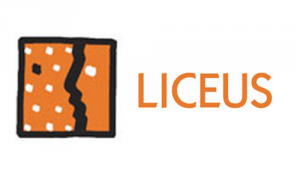


The UDIMA Specific Degree, Master's Degree in Teaching Spanish as a Foreign Language is part of the UDIMA's Life-Long Training programme and is managed on the virtual teaching platform Liceus. It is organised by the Department of the UDIMA's Language Institute and directed by Aurora Centellas and Elizabeth Miras. The aim of this qualification is to train teachers of Spanish as a foreign language and to give the most appropriate response possible to the needs of their students. The specific degree, Master's Degree in Teaching Spanish as a Foreign Language Online, aims to equip teachers so that they can develop in determined educational contexts or develop specific elements of knowledge and use of the Spanish language that may require greater attention or depth.
The different subjects on the master's degree are geared towards widening the teacher's skills, paying attention to the following educational areas: approaches to teaching and learning languages, planning and evaluating the teaching and learning process, teaching/learning contexts, teaching techniques and skills, resources for teaching and classroom dynamics, communicative skills and activities, professional development, etc. The multidimensional design of the skills of teaching and its development will not only contribute to improving the quality and enriching the training, but rather it will allow teachers to better identify their needs and plan their professional development with more criteria.
The methodology used is that of distance learning, in a virtual environment, via the UDIMA's platform. This involves a continuous evaluation system that helps our students to "learn by doing". The active methodology that is offered is based on the carrying out of different types of didactic activities and the use of digital tools in this learning environment. Throughout the course the student will have to carry out: Learning activities: evaluation tests based on the collective generation of knowledge. Self-evaluation tests: interactive, online evaluation tests. Continuous Evaluation Activities (AEC as per Spanish): simulations and case studies, information searching work, creating and presenting reports. All of this is established in a teaching guide, which the student will be able to consult and download from the online platform at any point.
The teaching-learning process is developed through the university's Virtual Classrooms. Our students can directly contact their teachers by means of the forums and by email. We aim for the personalised attention to be a criterion for quality in distance learning, offering training that suits the training needs and expectations of the students.
Students that pass the Master's Degree in Teaching Spanish as a Foreign Language will receive a qualification that is specific to the UDIMA.
http://aprende.liceus.com/
Duration: 9 months
Workload: 60 ECTS credits
Price: 3,000 euros (check breakdown of payments)
Start: 16 October 2017
End: 19 July 2018
Requirements: None
Qualification gained: Specific Degree from the Universidad a Distancia de Madrid (UDIMA)
Grant: 250 euros (established by the programme leaders) + info

The UDIMA Specific Degree, Master's Degree in Teaching Spanish as a Foreign Language is part of the UDIMA's Life-Long Training programme and is managed on the virtual teaching platform Liceus. It is organised by the Department of the UDIMA's Language Institute and directed by Aurora Centellas and Elizabeth Miras. The aim of this qualification is to train teachers of Spanish as a foreign language and to give the most appropriate response possible to the needs of their students. The specific degree, Master's Degree in Teaching Spanish as a Foreign Language Online, aims to equip teachers so that they can develop in determined educational contexts or develop specific elements of knowledge and use of the Spanish language that may require greater attention or depth.
The different subjects on the master's degree are geared towards widening the teacher's skills, paying attention to the following educational areas: approaches to teaching and learning languages, planning and evaluating the teaching and learning process, teaching/learning contexts, teaching techniques and skills, resources for teaching and classroom dynamics, communicative skills and activities, professional development, etc. The multidimensional design of the skills of teaching and its development will not only contribute to improving the quality and enriching the training, but rather it will allow teachers to better identify their needs and plan their professional development with more criteria.
The methodology used is that of distance learning, in a virtual environment, via the UDIMA's platform. This involves a continuous evaluation system that helps our students to "learn by doing". The active methodology that is offered is based on the carrying out of different types of didactic activities and the use of digital tools in this learning environment. Throughout the course the student will have to carry out: Learning activities: evaluation tests based on the collective generation of knowledge. Self-evaluation tests: interactive, online evaluation tests. Continuous Evaluation Activities (AEC as per Spanish): simulations and case studies, information searching work, creating and presenting reports. All of this is established in a teaching guide, which the student will be able to consult and download from the online platform at any point.
The teaching-learning process is developed through the university's Virtual Classrooms. Our students can directly contact their teachers by means of the forums and by email. We aim for the personalised attention to be a criterion for quality in distance learning, offering training that suits the training needs and expectations of the students.
Students that pass the Master's Degree in Teaching Spanish as a Foreign Language will receive a qualification that is specific to the UDIMA.
http://aprende.liceus.com/
Duration: 9 months
Workload: 60 ECTS credits
Price: 3,000 euros (check breakdown of payments)
Start: 16 October 2017
End: 19 July 2018
Requirements: None
Qualification gained: Specific Degree from the Universidad a Distancia de Madrid (UDIMA)
Grant: 250 euros (established by the programme leaders) + info